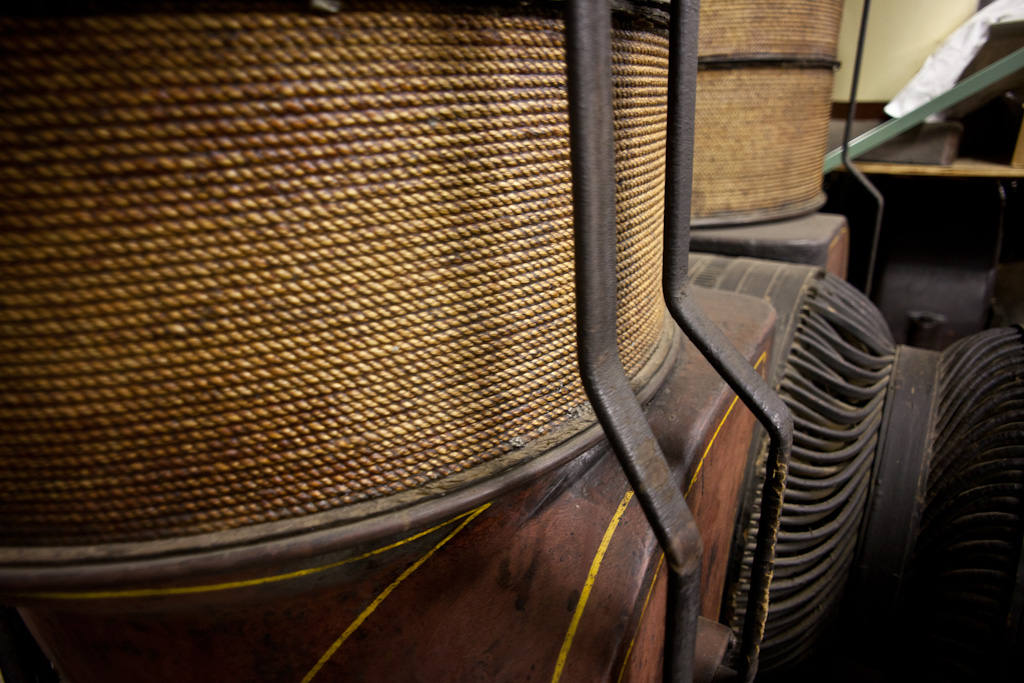Like a number of you I purchased a Twine – the thing that provides new ways to sense and measure and understand the world around us. I’m a happy customer – they’ve done a good job in rallying a community, bring it to market, and although I’ve never met the team there’s I have a greater affinity for who they are (or who I perceive they are) and what they’re trying to do than most of my relationships as a consumer. But I’ve hardly used it.
Today I received an email nudge from them.
”
I just wanted to check in and see how things are going with you and your Twine.
…
We want you to enjoy owning Twine as much as we enjoyed designing it, so please let us know if you have any questions!
”
I assume this email is in response to how little I’ve been using Twine, the range of things that I tried using it for and how quickly I stopped experimenting with it – when the product is connected it’s easy data to pull up. The email is subtle enough to be read as something more generic and certainly doesn’t come across as big-brotherish. But it did trigger pangs of guilt.
Guilt that the blood, sweat and tears they put into bringing this to market; the environmental impact of manufacturing, shipping it to me; and in spending the time on support to set it up; all were not repaid through sustained use. And I know they know (and if they are reading this, they know I know they know). Hence the guilt. Which, in this slither of a discussion, is a good thing, because a better understanding of use can help me make smarter consumption decisions in the future. Or at least from today’s perspective, because new models of consumption, sale, support, ownership and use emerge – its not a static landscape. (I prefer to consider myself a consumer in the sense of appreciating consumption, use, rather than wanton consumption).
In a world where your new fridge, bicycle, camera lens, drill all inherently share back use, a few thoughts for today:
- » What are your moral/legal obligations for products you buy? Think: use, consumption, disposal.
- » What is the disparity between intended use and actual use?
- » When, and in what ways is it appropriate for companies to share back usage data?
- » And what kind of behavioural change can it affect?
- » What value added service opportunities for coaching use/setting up etc. can companies provide?
- » I’m reminded that the most opportune time to sell insurance is just after a near-miss while the memory is hyper-fresh and the person is still in shock, what are these conducive moments for every kind of product/service?
- » Which companies will trigger near-miss equivalents to trigger additional purchases or sell value added services?
- » Which companies will base their entire business model off the the disparity between intended use at the time of purchase versus actual use? Amazon does this bait and switch with (“free”) Prime Instant Videos to pull customers into buying Prime but then offering a suboptimal experience in finding those films to assumedly reduce royalty fees and encourage paid purchases.
- » How does this feedback loop shift the adoption curve? In particular how does use-transparency impact early adopters whose motivation is driven by experiencing something first?
- » What kinds of secondary markets does this enable? Amazon’s email nudge for you to sell used books that you bought from them a few years ago is a good example: they know what you bought, where you live, what people like you put back onto the market, what that book is now worth and to whom (even better they probably make better margins off used books, since they only act as a broker, and don’t necessarily need to hold stock).
Ultimately I think this changes our sense of ownership and if you want to extrapolate a little, our need to track where the objects we own are. Not in the sense that we will know the discrete location of things (the mythical/bullshit stuff-finder concept/beast that does the rounds every now and then), but rather in the sense that objects will either have built in mechanisms/motivations to find their way back to us, or that someone else’s usage will benefit us.
It’s good to unravel a Twine.
See also: Profiting from Loss, Theft & Other Sustainable Business Models.
Photo: Ford Museum, Detroit.

One Trackback
[…] I was reading a Jan Chipchase post talking about how some Internet-connected devices create on him a kind of guilty when he is not […]